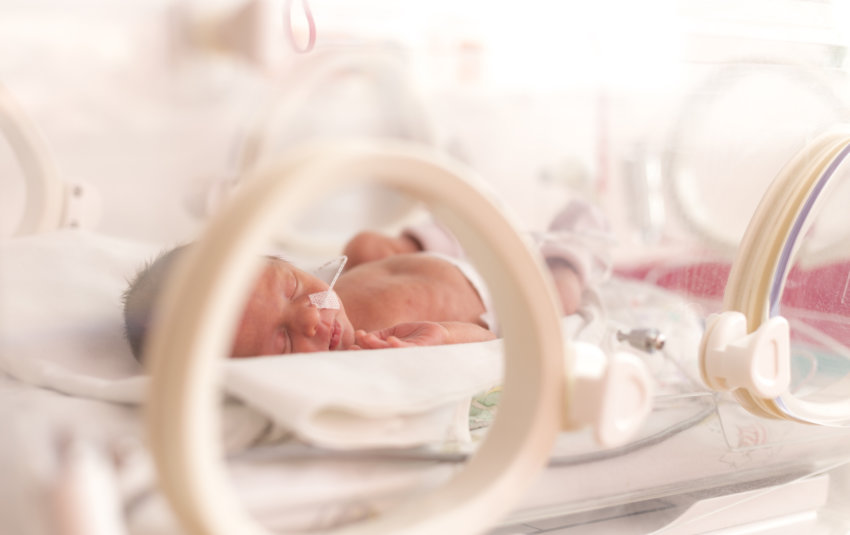A UT Health San Antonio program, in collaboration with University Health, aims to strengthen the emotional connection between mothers and their infants in the Neonatal Intensive Care Unit (NICU). Family Nurture Care, an evidence-based intervention, is currently being implemented at the Level IV Neonatal Intensive Care Unit (NICU) at University Hospital.
Through this program, mothers play an active role and become part of the care team working alongside Nurture Specialists trained by the Nurture Science Program at Columbia University. The Nurture Specialists are bilingual and support both Spanish and English-speaking families.
“Family Nurture Care serves to heal the interrupted, emotional connection between mother and baby led by trained Nurture Specialists. This cultivates a thriving relationship between mother and baby and impacts the trajectory of their well-being for life,” said Alice K. Gong, MD, William & Rita Head Distinguished Professor of Environmental and Developmental Neonatology and medical director, UT Health San Antonio PREMIEre Program.
Touching, talking, smelling, listening and making eye contact all play an important role to establish an emotional connection. Data collected shows that these interactions lower stress levels in both the mother and infant. Over time, mom calms baby and the baby calms mom.
In addition, nurses, therapists and physicians receive Family Nurture Care training. This level of compassionate care gives families the best possible start together.
More than 12% of babies in Bexar County are born prematurely. According to the Centers for Disease Control and Prevention, 1 in 10 babies in the United States was born prematurely in 2020.
A premature baby is born too early, before 37 weeks of pregnancy. Premature babies may not be fully developed at birth, may have more health problems and may need to stay in the hospital longer. The emotional connection can be interrupted while the baby receives medical care and this can lead to lasting trauma for both the infant and parent.
“Babies in the NICU have a much higher risk for autism, ADHD, behavioral and emotional disorders and their moms often experience post-traumatic stress disorder, depression and anxiety,” said Umber Darilek, RN, Nurture Specialist.
Mothers served by the program reported feeling more engaged and confident. Data has shown that mothers who participated in the intervention experienced decreased anxiety and depression over time.
“I feel like I didn’t stop feeling discouraged until I was able to speak to a Nurture Specialist and they taught me what a good bond looks like with the mother and baby and guided me on what I can do to form that bond and make it stronger,” said Marissa Weschler, mom to baby Zen, born at 27 weeks.
“I remember Umber Darilek and Cheryl (NICU Nurture Specialists) teaching me – empowering me – to take my role back as his mom. If I could have one wish in this world it would be for every NICU mom to have that experience that I did,” said Julie Hernandez, Mom to Jacob, born at 29 weeks.
Researchers found that Family Nurture Intervention (FNI) improves infant brain development and parent-infant emotional connection that lowers the risk of behavioral and emotional disorders later in life. With the implementation of FNI to all NICU families, researchers hope to improve parent satisfaction with the NICU experience, parent readiness for the transition home, consumption rates of mother’s breast milk, infant weight gain and a shortened length of the hospital stay.
Implementation of this new standard of care started in January 2021 at University Hospital with funding from the Baptist Health Foundation and the Nurture Science Program at Columbia University. Prior to implementation, UT Health San Antonio and University Health collaborated with the Nurture Science Program at Columbia University in a multi-site randomized control trial that studied the impact of the intervention on infants and mothers.
The program was recently awarded a 2021 Support Grant in the amount of $7,000 from Impact San Antonio Foundation Incorporated. Researchers continue to collect data and are writing a roadmap so other NICUs can follow this paradigm of care.


